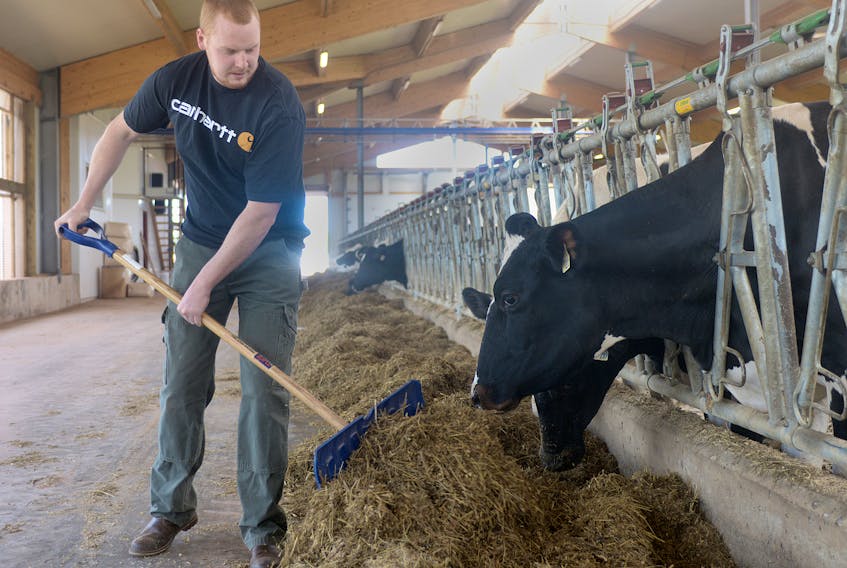SYLVAIN CHARLEBOIS
GUEST OPINION
It was not the G7 most expected. Not even close. But should we be surprised? As President Trump cries havoc and lashes out on Twitter against Canadian dairies, Canada is beginning to realize that there may be no NAFTA 2.0 after all. Washington is apparently aiming for two separate deals, but over the last few months those paying attention have recognized how our supply management scheme, which protects dairy farmers, can gradually adapt to the new global competitive reality. It is happening without a revised policy framework, and with no vision or any strategy for the sector; our American friends are clearly not playing along.
Some reports suggest that milk prices at farmgate have started to drop in many provinces, including Québec. For years, the pricing formula to compensate dairy farmers was centred on averages, with no incentives for farmers to become more market-driven. This seems to be changing. If industrial milk prices drop, dairy farmers will either need to reinvest or exit the industry all together. Forcing farmers to make a strategic decision on whether or not they should serve the economy is immensely desirable, long overdue, and needs to continue. This will allow motived dairy farmers to grow and receive proper recognition by our system.
But growth is not just about primary production; it is also about processing. Recently, Coca-Cola announced it would invest $85 million dollars in its Peterborough-based Minute Maid plant to manufacture its Fairlife brand in Canada. Fairlife is an ultrafiltered, lactose-free milk that contains nine essential nutrients with more than 50 per cent more protein and 50 per cent less sugar than traditional milk. This is a highly innovative product for the Canadian market. In return, farmers will temporarily offer Coca-Cola a special price for its milk. This investment was possible due to the will of Ontario dairy farmers to increase processing capacity in the province, and to support what is seen as an incredible opportunity to repurpose a floundering product. Milk consumption per capita in Canada has been dropping for decades, and Coca-Cola’s approach could entice many consumers to return to it.
In the past similar projects were denied by dairy farmers who believed it would disrupt our quota system, which is designed to supply only what we need. In contrast, foreign investors like Coca-Cola seek reliable access to cheaper milk in order to maintain their competitiveness. In 2013 U.S.-based Chobani, a successful producer of Greek yogurt, abandoned plans to build a $76 million state-of-the-art plant in Kingston, Ontario, which would have created almost 1,300 direct and indirect jobs. It could have been a significant game-changer for the local economy at the time. Quote restrictions and milk procurement were significant issues in Chobani’s decision.
New classes of industrial milk are being created to accommodate processors; the pressure is on, and the resulting changes are welcomed. Under the Comprehensive European Trade Agreement and Trans-Pacific Partnership the Canadian dairy market is becoming increasingly accessible. These deals have created an opportunity in our quest to maintain a perfect equilibrium between supply and demand; yet, nothing is done to support our dairy industry, to make it more competitive moving forward. Supply management in the present is essentially a mirage, an unattainable ideal. Rules are rapidly changing around the industry, while the systems under which farmers and family farms work are not being retooled to match these new challenges and to manage a very different business.
After decades, despite the overwhelming political hypocrisy, many Canadian dairies are finally showing signs of common sense. However, Québec remains idle; painfully and stubbornly idle. Other provinces appear to see the writing on the wall and are taking specific, targeted measures to demonstrate how supply management can change. Some suggest supply management could become a bargaining chip with the United States for this round of negotiations. By the looks of it, it already is, and many are bracing for significant changes. This was very predictable. Nonetheless, to show real leadership in foreign trade policy, Ottawa will need to give some thought on how to support our dairy farmers as their world is being disrupted.
- Sylvain Charlebois, is a senior fellow, Atlantic Institute for Market Studies









